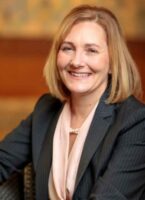
On January 20th, we recognize Martin Luther King Jr. Day. Although advocacy for the creation of Martin Luther King Day began shortly after his assassination in 1968, it was not until 1983 when Ronald Reagan signed it into law as an official holiday. Moreover, it was not until 2000 when all 50 states recognized it as a legal holiday. I bring this up because important change is often slow- especially at the beginning.
We can see this here at the School of Medicine and in St Louis. That is certainly not for a lack of trying or for a lack of significant success. Under Dean Ross’ and Dean Stevenson’s leadership, we have made marked strides in the diversity of our student body. Since 2010, the number of students who self-identify as under-represented in medicine (URiM) has almost doubled with nearly 20% of the current first and second year students self-identifying as URiM. In recent years, new programs were developed to enhance URiM resident, fellow and faculty recruitment and retention. OUTMed has seen massive support and growth with a new mentoring program and enhanced engagement in student recruitment. The appointment of our first Associate Vice Chancellor for Diversity, Equity and Inclusion, Dr. Sherree Wilson, resulted in the creation of enhanced educational programming on diversity and equity and has created new conversations on campus. We are proud residents of the St. Louis community. Over the years, we have invested in urban renovation, biotechnology incubators, and community partnerships to improve the health of all St. Louisans. All of these things have made an important impact.
Yet there is much to do. The population of healthcare professionals and scientists is nowhere near representative of the population we serve. Like other schools, we have identified structural racism in standardized tests as a major challenge to equity in grading and therefore opportunity. We are confronting unconscious and conscious biases in our systems and ourselves. We face massive economic, social, health and healthcare disparities in the St Louis region. These and others are daunting problems without easy solutions. Problems that are born from centuries of racism and inequity.
But, I believe we are near a tipping point- that place where complex change begins to occur more rapidly, snowballing into a new future, no longer of incremental change, but change of a more sudden and sweeping nature. That change stands on the foundation of years of painstaking work that is done before it. Why do I say this? This year, we have seen increased applications from students underrepresented in medicine. Our Dean has made a substantive financial commitment to scholarships, both need-based and merit, an issue, which frequently hampers both applications to medical school and effective recruitment of students from disadvantaged backgrounds. Dr. Wilson and her team are engaging in a number of new initiatives that will increase and sustain our student, staff and faculty diversity while enhancing the cultural climate on our campus. In this issue of the newsletter, we highlight two senior leader recruitments who add important diversity to the leadership of our school. Chancellor Martin has announced critical new initiatives to transition us from Washington University in St Louis to Washington University for St Louis.
In July, the School of Medicine will launch a new curriculum for medical students. In addition to expanding on the work already done in the existing curriculum to train students in health disparities and social medicine, we are expanding our partnerships with community organizations. Dr. Ross was recently named the Principal Officer for Community Partnerships and Dr. Laurie Punch is spearheading our efforts to collaborate with both healthcare and non-healthcare organizations for this curriculum. The Gephardt Institute on the Danforth campus has expanded its reach and increased its programming and support for community engagement. Siteman, the ICTS and our clinical partners are also expanding their engagement in and with our community and doubling down on their investments to reduce health and healthcare disparities. We are perhaps more aligned and engaged with community partners than we have ever been.
So, in this month of remembrance of the great Dr. Martin Luther King, I am truly hopeful. Hopeful that we are reaching a tipping point here in St Louis. Hopeful that we will see a more rapid transition toward equity than we have yet seen. Hopeful that together, we will see the place of Dr. King’s dream speech. Yet, it is clear that we cannot rest and there is much, much to be done. For as Dr. King so eloquently stated:
“We are not satisfied and we will not be satisfied until justice rolls down like waters and righteousness like a mighty stream.”
I wish you resilience and hope in the important work that is to come.